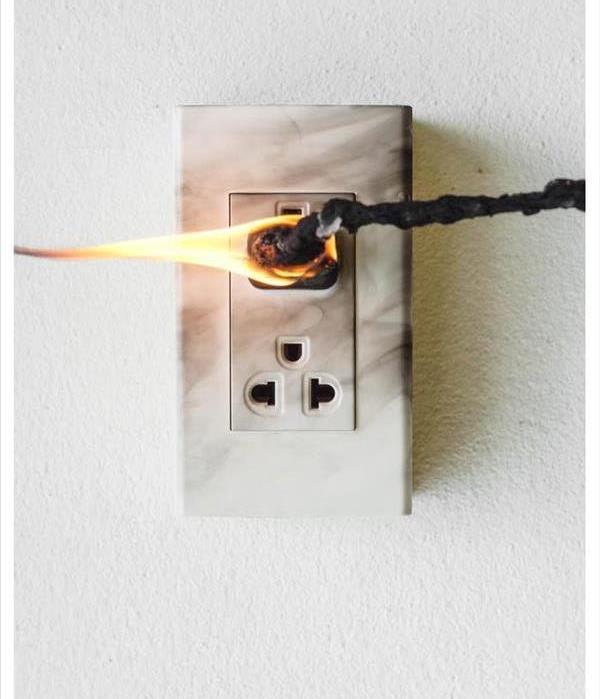Preventing an Electrical House Fire
6/1/2021 (Permalink)
Electricity can be found everywhere in a home, from the corners of rooms to kitchen cupboards. As a result, there is a substantial risk of damage. Electrical fires can cause significant damage to your house and jeopardize the safety of your family. The good news is that electrical fires can frequently be avoided. By being vigilant and knowledgeable about preventing electrical fires, you may feel safe in your home, knowing that you have taken the necessary precautions to prevent them entirely.
1. Ensure that all electrical outlets are securely attached to the wall. Begin by inspecting all your home's electrical outlets. As loose-fitting plugs can cause a shock or a fire hazard, make sure they are snug and secured to the wall.
- Replace any wall plates that are cracked or missing and cover any unused outlets with a new wall plate to prevent exposed electrical wiring.
2. Electrical plugs should not be tampered with. To fit a plug into a two-conductor outlet, the third prong should never be removed. It is also a good idea not to bend or twist the prongs on the plug, as this can cause an electrical hazard.
- Never try to force a plug into an outlet. Instead, slip the plug into and out the electrical plug by holding the covered top piece firmly. Pulling on the cord might wear it out and put you at risk of an electrical fire.
3. Surge protectors should be used. An electrical fire can be caused by overloading an outlet with too many plugs. Instead, get many surge protectors or power bars and install them in your home's electrical outlets. After then, only one to three cords should be plugged into the power bar at a time.
- Look for power bars that have internal overload protection. If the power bar becomes overloaded, the internal overload protection will shut down, averting an electrical fire.
4. Replace any electrical cords that are frayed or damaged. It would be best to inspect your electrical cords to make sure they are not frayed or broken. Replace them with new electrical cords if they are worn out. For a replacement cord, you may need to contact the appliance's manufacturer.
- Double-check that the electrical plug is attached correctly to the power cord. Any exposed wiring components on the plug or cord should be avoided.
5. Extension cords should only be used on a temporary basis. Though using extension cords to extend the cords on your appliances or electronics may be appealing, they should only be used as a temporary solution. It is preferable if you do not use extension cords as your home's permanent electrical wiring. They can pose a serious electrical risk.
- If you must use extension cords, be sure they are equipped with safety closures. This will keep small children from being shocked by power cords.
6. Electrical cords should be kept away from carpets and water. Electrical cords should not be hidden under carpets, rugs, or furniture. If they fray and encounter carpet or furniture, they could cause a fire. It would be beneficial if electrical cords were put in low-traffic places where they would not be stepped on or interfered with any way.
- Keep any electrical cords away from water, as water can cause the cords to spark, resulting in an electrical fire.
- Do not attach or staple electrical cords to walls, floors, or other objects, as this can cause an electrical hazard by interfering with the electrical current.
Contact Us When You Need Help
When you contact SERVPRO of Petaluma/Rohnert Park/Santa Rosa at (707) 588-8226, you can be confident that your house will be cleaned and repaired by our team of specialists. We are accessible 24 hours a day, 7 days a week to assist you with a fire damage event.






 24/7 Emergency Service
24/7 Emergency Service
